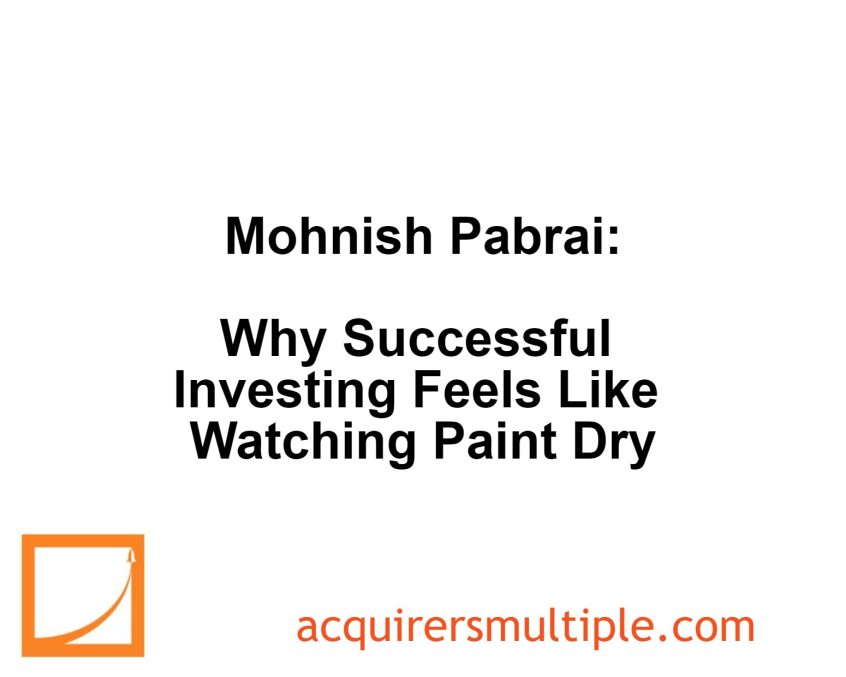During this interview with The Investor’s Podcast, Mohnish Pabrai discusses the importance of maintaining a spreadsheet to track the intrinsic value of his investments.
He emphasizes that while market values fluctuate, understanding the true value of a business is crucial, especially during volatile times like the financial crisis. Pabrai highlights a Turkish company, Raysas, where he holds a significant stake, viewing it as a long-term, family-like investment.
This mindset extends to his other investments, focusing on holding valuable businesses acquired at good prices indefinitely. By doing so, he believes that minimal intervention is needed, akin to watching paint dry.
Here’s an excerpt from the interview:
Pabrai: Actually, I still keep that spreadsheet. I still keep the spreadsheet because I think it’s useful to understand. I mean, we get quoted values on the businesses that we own, but it’s also useful to know what I think might be the underlying value of the businesses that we own.
And so I still have a very similar spreadsheet. And I do update it periodically. It doesn’t take much time. I mean, it’s, we don’t have, we might have one or two new ideas in a year. And so there’s not much movement, but one of the reasons why that was helpful is that we had made an investment a few years back in this Turkish company where, there was such a big gap between price and value.
That it was just kind of useful to understand what the whole thing is worth. And I also needed to, because we have so much concentration in one of the funds with that position, I needed to educate our investors that, hey, listen, if you sell or exit, please understand what you’re selling, right? I mean, you’re selling based on market value.
But intrinsic value may be much different from that. And so I think in the financial crisis, the rope was important to pull me out of a deep well. And now I think it doesn’t, it’s not really a, I’m in, but it’s really a beacon, which it’s kind of like a North star, which tells me how I should think about it.
And like, for example, that particular business, Raysas. In Turkey, we own about a third of that business. And I really think of it like a family business. So I’m not part of the family that founded that business. I’m not the part of the family that runs that business. But I feel like I’m part of an extended family that has ownership of this business and asset.
And I think of it almost like a private position, like, like we own a private business. And my goal with that business is to own it forever. Right. And so as long as the family that owns the business and runs the business, as long as they maintain their ownership, and they are the managers running the business.
We don’t want to make any changes. And so that mindset, I think is important. And I use that mindset. I try to use that mindset in some of our other positions as well, because that’s really the name of the game is that once you have ownership or partial ownership of a truly wonderful business that you acquired at a wonderful price, you’re done. Not much to do. Just watch paint dry.
You can watch the entire interview here:
For all the latest news and podcasts, join our free newsletter here.
Don’t forget to check out our FREE Large Cap 1000 – Stock Screener, here at The Acquirer’s Multiple:



